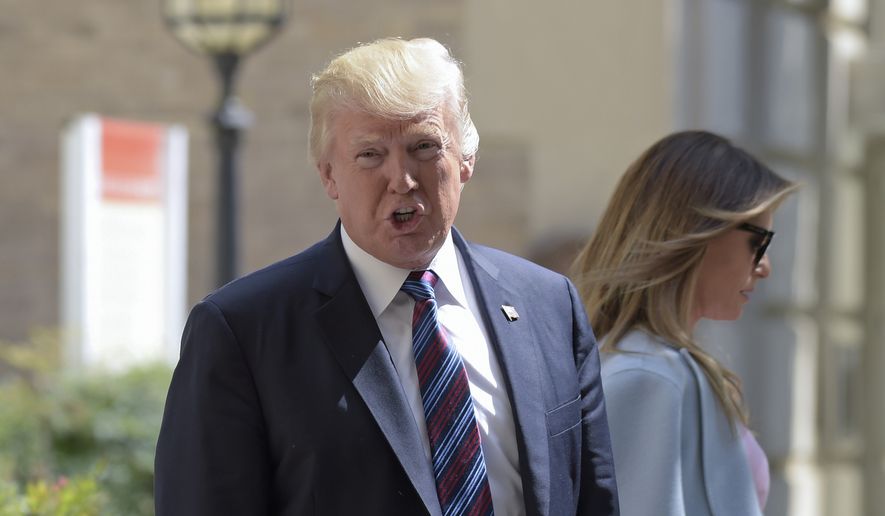Throughout his campaign, President Trump voiced unwavering support for U.S. ethanol.
Now that he’s in the White House, industry leaders say it’s time for Mr. Trump to back up his words with action by returning fire against Brazil and China in what increasingly looks like a global trade war over biofuels.
The administration, ethanol sector leaders say, is weighing how to respond to China’s penalty on ethanol imports and, more recently, a move by Brazil to slap a 20 percent tariff on all American ethanol after a 600 million liter quota. Both tariffs are expected to wreak havoc on the U.S. ethanol industry, which is highly dependent on growing export markets in China, Brazil, and other nations around the world.
Neither the Commerce Department nor the U.S. Trade Representative’s office responded to requests for comment on how the administration may respond. But pressure on the White House to push back swiftly and strongly is growing by the day.
“Overall as an industry, we absolutely want to see our U.S. government respond and we want to see a response that is of equal magnitude of the economic loss we’ll see with this tariff put in place,” said Emily Skor, the CEO of Growth Energy, a trade association that represents ethanol producers.
“We’re starting to have the conversations with the U.S. government to understand what are the options that are on the table,” she added of the potential response to the Brazil tariff.
Brazil’s move, analysts said, is a response to the country’s own sugar cane ethanol producers, who pushed the government to keep out American products and institute protectionist measures making their products more competitive. Brazil is the main foe to the U.S. in the worldwide ethanol production market.
Similarly, China is eyeing a major increase in its own ethanol production, and that led to the nation slapping major duties on American imports of ethanol and dried distillers grain.
Much like Brazil, China is taking action against U.S. imports because it realizes its own industry can’t hold its own on a level playing field.
“They’ve got surplus grain they’re trying to use up. They wouldn’t be able to compete with U.S. ethanol and our feed byproducts,” said Bob Dinneen, president and CEO of the Renewable Fuels Association, the ethanol industry’s leading trade group.
On China, the Trump administration earlier this year tapped former Iowa Gov. Terry Branstad to be U.S. ambassador. Mr. Branstad, a Republican who hails from a state that’s seen massive economic growth due to ethanol, is expected to exert pressure on the Chinese to relax their tariffs on U.S. products.
Mr. Trump also recently assured Sen. Charles E. Grassley, Iowa Republican, that he’ll stick by his campaign promises and defend the ethanol industry, though he hasn’t detailed any potential responses to China’s moves.
“Just had ph call from Pres Trump + he assured me he’s pro ethanol +I’m free 2 the ppl of Iowa he’s standing by his campaign PROMISE,” Mr. Grassley tweeted after a phone call with the president last week. “He knows that ethanol is good good good.”
The situation with Brazil could prove to be trickier. While Brazil has been one of the main export markets for U.S. ethanol, the country also is a key source of advanced biofuels products required by American law.
The federal Renewable Fuel Standard (RFS), the 2007 law that requires ethanol be blended into the nation’s gasoline supply, calls for certain percentages of “advanced” biofuels be used each year.
Sugar cane ethanol produced in Brazil qualifies as advanced biofuels, unlike the more traditional corn-based ethanol produced in places such as Iowa.
While the U.S. could respond by slapping a tariff on Brazilian sugar cane ethanol, such a move ultimately would make it more difficult to meet obligations under the RFS and could carry other unforeseen consequences.
“The US has many levers — from the Renewable Fuels Standard to trade retaliation in other products important to Brazil. I can’t speculate what the Trump administration will do but raising barriers is a losing proposition,” said Joel Velasco, who formerly served as the North American representative for UNICA, Brazil’s sugar cane industry association.
More broadly, ethanol industry leaders say it’s important that the administration respond strongly to Brazil and China in order to send a clear message to other nations around the world, and to stop an all-out trade war.
“We’re looking at some of our biggest trade partners putting up protective barriers. First China, now Brazil. It’s a troubling trend,” Ms. Skor said. “We’ve got to figure out what to do.”
Others say there’s still time to prevent to prevent the situation from deteriorating further, but only if the administration acts decisively.
“There are skirmishes. And I hope it doesn’t turn into a trade war,” Mr. Dinneen said.
• Ben Wolfgang can be reached at bwolfgang@washingtontimes.com.




Please read our comment policy before commenting.